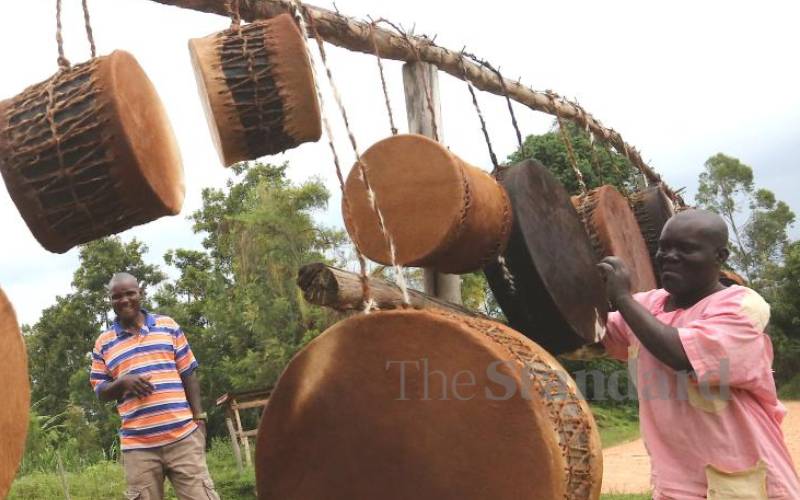×
The Standard e-Paper
Home To Bold Columnists

Joseph Omusundi Anyembe displaying different types of drums at Mukhuyu shopping center, Emulundu, in Lurambi on October 13, 2021. [Benjamin Sakwa, Standard]
American musician cum producer Fred Armisen once said: “Everyone knows deep in their hearts that the drums are the coolest instrument and that a band is only as good as its drummer. I am all for drummers hamming it up.”